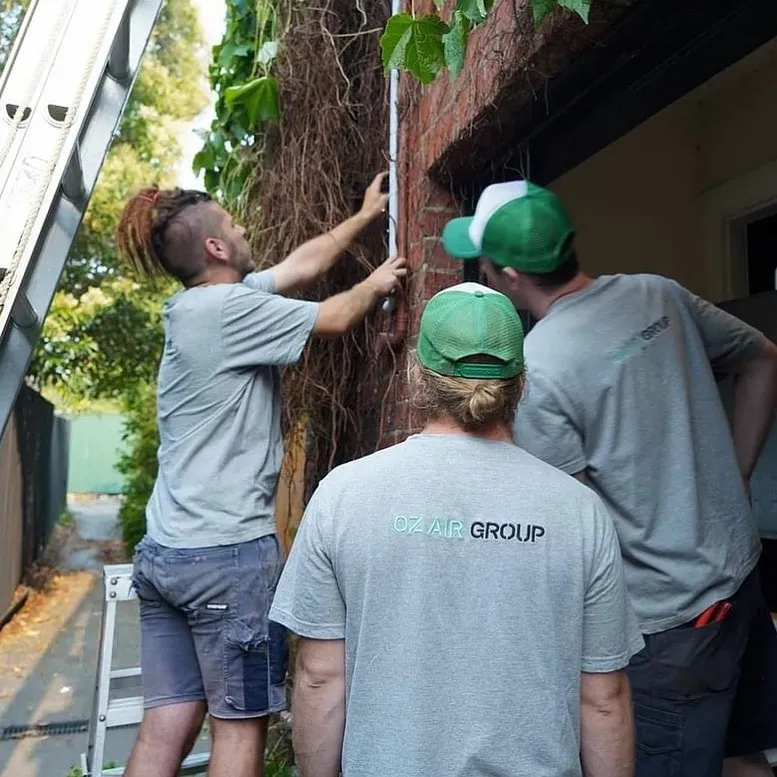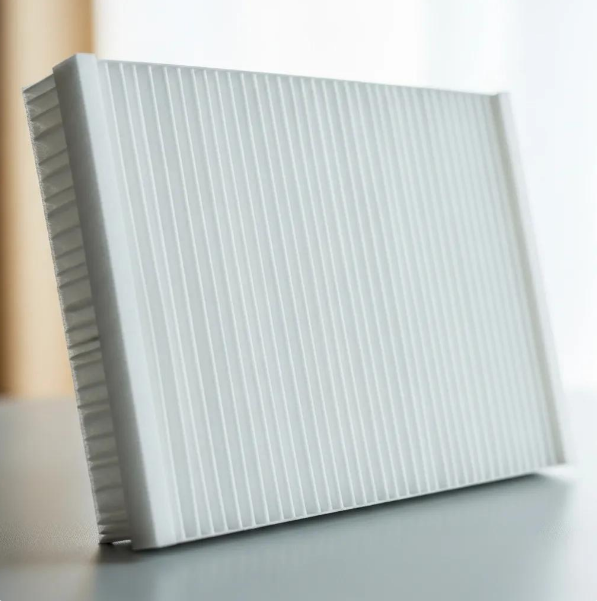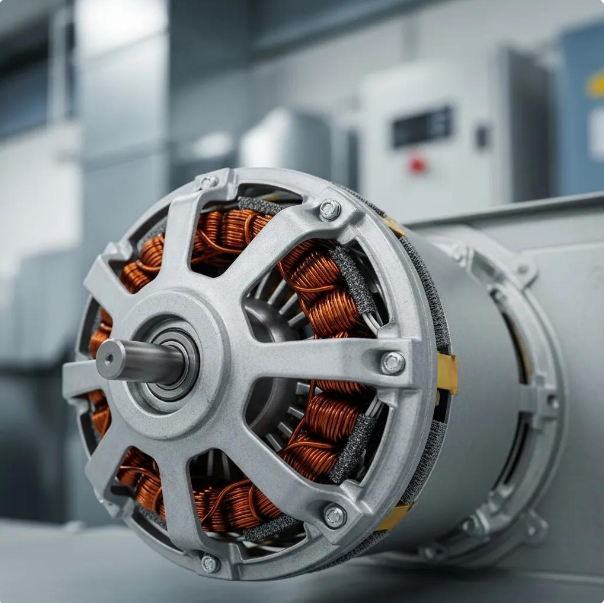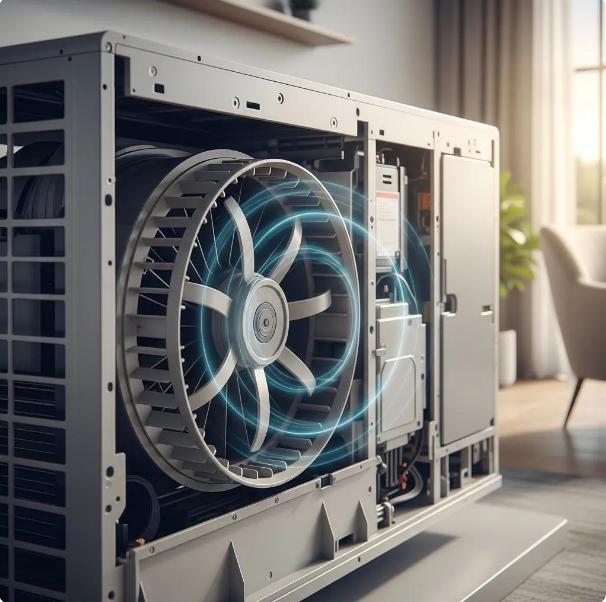What are the Quietest Air Conditioner Types to Install?


Government Rebates Now Available on Energy-Efficient Air Conditioners when Replacing your Gas Heater.
Air conditioners are essential for maintaining comfort in our homes, especially during hot Australian summers. However, not all air conditioners are created equal when it comes to noise levels. In this comprehensive guide, we'll explore the quietest air conditioner types to install, helping you make an informed decision for your home.
Before we go into specific types, it's important to understand what we mean by a "quiet" air conditioner. Different air conditioner types and models come with varying noise levels. The noise level of an air conditioner is typically measured in decibels (dB), which quantifies the intensity of sound. A quieter air conditioner will have a lower decibel rating.
The quietest air conditioner types are generally those that operate at noise levels below 50 dB. To put this into perspective, normal conversation is around 60 dB, while a whisper is about 30 dB.
When considering split system air conditioners specifically, the quietest models can operate at impressively low noise levels, sometimes as low as 19 dB for indoor units and 46 dB for outdoor units during normal operation.
Benefits of Choosing a Quiet Air Conditioner Type
Opting for a quiet air conditioner offers several advantages:
- Improved sleep quality
- Enhanced concentration for work or study
- Reduced stress levels
- Better overall comfort in your home
- Increased property value
Negative Consequences of Installing a Loud Air Conditioner
On the flip side, installing a loud air conditioner can lead to:
- Sleep disturbances
- Difficulty concentrating
- Increased stress and irritability
- Potential conflicts with neighbours
- Reduced enjoyment of your living space
Tips for Choosing the Quietest Air Conditioner
When selecting a quiet air conditioner, consider the following:
- Check the decibel ratings for both indoor and outdoor units
- Look for models with variable-speed or inverter technology
- Consider the size and layout of your space
- Read customer reviews focusing on noise levels
- Consult with air conditioning installation experts
It's crucial to seek advice from air conditioning installation experts like Oz Air Group in Melbourne. Their experience and knowledge can help you choose the quietest and most efficient system for your specific needs.
What Does a Quiet Air Conditioner Mean?
A quiet air conditioner is one that operates at a low noise level, typically below 50 dB for the indoor unit. In the context of air conditioning, "quiet" refers to:
- Low noise level: Minimal sound output during operation
- Smooth operation: Absence of rattling, vibrating, or other disruptive noises
- Consistent performance: Maintaining low noise levels across different operating modes
How is Air Conditioner Noise Level Measured?
Air conditioner noise levels are measured using a sound level meter, which captures the intensity of sound in decibels (dB). The measurement is typically taken at a specific distance from the unit, often 1 metre away.
Signs that an air conditioner is becoming louder than normal include:
- Sudden increases in operating noise
- Unusual sounds like rattling, buzzing, or whistling
- Vibrations that weren't present before
- Inconsistent noise levels during operation
What Noise Levels are Considered Acceptable in Victoria?
In Victoria, the Environment Protection Authority (EPA) sets guidelines for acceptable noise levels from air conditioners and other mechanical equipment.
What are the regulations for Air conditioning noise level in Victoria?
The EPA Victoria has established the following noise regulations for air conditioners:
- Daytime (7 am to 10 pm):some text
- Background noise + 5 dB in residential areas
- Not to exceed 55 dB
- Night-time (10 pm to 7 am):some text
- Background noise + 0 dB in residential areas
- Not to exceed 45 dB
These regulations exist to:
- Protect residents from excessive noise pollution
- Maintain neighbourhood harmony
- Ensure a healthy living environment
- Promote the use of quieter, more efficient air conditioning systems
5 Quietest Air Conditioner Types Recommended to Install
- Ductless Mini-Split Systemssome text
- Average noise level: 19-50 dB
- Reason: Separate indoor and outdoor units reduce noise transmission
- Ducted Reverse Cycle Systemssome text
- Average noise level: 25-35 dB (indoor), 50-60 dB (outdoor)
- Reason: Central location and insulated ducts minimise noise
- Window Air Conditioners (Newer Models)some text
- Average noise level: 50-60 dB
- Reason: Improved compressor and fan technology in recent models
- Portable Air Conditionerssome text
- Average noise level: 50-55 dB
- Reason: Compact design and improved insulation in modern units
- Central Air Conditioning Systemssome text
- Average noise level: 25-40 dB (indoor), 50-70 dB (outdoor)
- Reason: Indoor components are typically located away from living spaces
It's important to note that different models within each type can have varying noise levels. Always check the specific decibel ratings for the models you're considering.
What is the Quietest Split System Air Conditioner?
The Daikin US7 is widely regarded as one of the quietest split-system air conditioners available. It operates at an incredibly low 19 dB for the indoor unit and 46 dB for the outdoor unit.
Key features contributing to its quiet operation:
- Inverter technology for smooth operation
- Specially designed fan blades to reduce turbulence
- Insulated compressor compartment
- Night quiet mode for even lower noise levels during sleep hours
What is the Quietest Ducted Air Conditioner?
The Actron ESP Platinum ducted system is known for its quiet operation. It boasts noise levels as low as 25 dB for the indoor unit.
Features that contribute to its quiet performance:
- Variable fan speed technology
- Acoustic insulation in the indoor unit
- Vibration isolation mounts
- Specially designed air distribution system
What Air Conditioning Brand Produces the Quietest Air Conditioners?
Daikin is widely recognised for producing some of the quietest air conditioners on the market. The company has a long history of innovation in noise reduction technologies, including:
- Inverter technology for smoother operation
- Specially designed fan blades to minimise air turbulence
- Sound-absorbing insulation materials
- Advanced compressor designs to reduce vibration
What Air Conditioning Brand Produces the Most Efficient Air Conditioners?
Mitsubishi Electric is often cited as a leader in energy-efficient air conditioners. Their units consistently achieve high energy star ratings.
Choosing an energy-efficient air conditioner is closely related to selecting a quiet unit. Energy-efficient models often use inverter technology and variable-speed compressors, which not only save energy but also operate more quietly.
What is the Best Air Conditioning Type for Bedrooms?
For bedrooms, a ductless mini-split system or a well-designed ducted system is often the best choice. These types offer:
- Quiet operation (as low as 19-25 dB)
- Precise temperature control
- Even air distribution
- Minimal visual impact in the room
Choosing a quiet air conditioner for bedrooms is crucial for improving sleep quality. Research has shown that reducing nighttime noise levels can lead to better sleep duration and quality, which in turn improves overall health and well-being.
What are the Criteria to Choose the Best Air Conditioning to Install?
When selecting the best air conditioning system to install, consider:
- Noise level (in decibels)
- Energy efficiency (look for high star ratings)
- Cooling capacity appropriate for your space
- Installation requirements and costs
- Brand reputation and warranty
- Additional features like air purification or smart controls
- Your budget and long-term operating costs
Who Can Help on Choosing the Best Air Conditioning for You?
A qualified and experienced air conditioning technician or installer is the best resource for choosing the right system. They can:
- Assess your specific needs and space requirements
- Recommend appropriate systems based on noise levels and efficiency
- Provide accurate quotes for installation
- Ensure proper installation for optimal performance and noise reduction
How Does Oz Air Group Help You on Choosing the Quietest Air Conditioner to Install?
Oz Air Group, based in Melbourne, has been a trusted name in air conditioning installation and service. Our team of experts has installed a wide range of air conditioning types and models.
Our expertise includes:
- In-depth knowledge of various air conditioner types and brands
- Understanding of local climate conditions and how they affect AC performance
- Familiarity with Victorian noise regulations and energy efficiency standards
- Ability to recommend the best models for quiet operation in different settings
For personalised advice on choosing and installing the quietest air conditioner for your home or business, contact Oz Air Group today. Visit our website at www.ozairgroup.com.au or call us to schedule a consultation. Our team is ready to help you create a comfortable, quiet, and energy-efficient environment in your space.
Areas we service
Oz Air covers Melbourne and its northern suburbs.

Get in touch






.png)









.png)